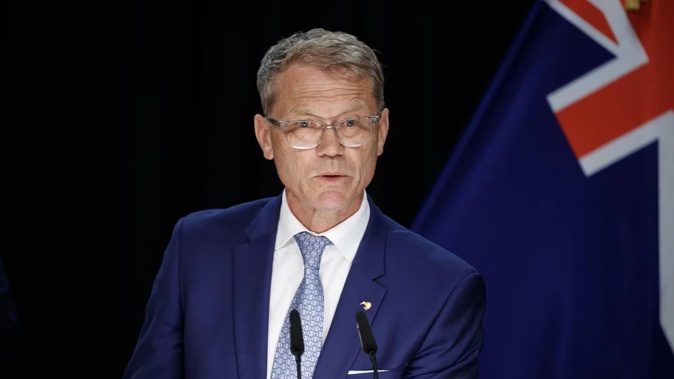
Minister of Justice Paul Goldsmith is standing by proposals to narrow the voter enrolment deadline, following confirmation of ministerial advice on the matter.
A major overhaul in the works includes plans to close enrolment 13 days before election day, to reduce pressure on post-election timeframes.
Other signalled changes include reinstating a ban on prisoner voting, requiring 12 days of advance voting, and banning free food, drink, or entertainment within a certain area around a polling place.
An aide memoire, released to Newstalk ZB under the Official Information Act, stated while enrolment is compulsory, policy and practice over the last 30 years has built a public expectation that people can enrol during the voting period.
The advice added shifting the enrolment deadline to over a month before election day would require “significant behaviour change.” Officials previously considered closing enrolment on writ day, and requiring people to vote in their electorate.
This was not the final aspect of the proposal, as plans landed on a 13 day deadline.
Under the proposed changes, if the enrolment deadline was 13 days before election day, anyone enrolled between writ day and the enrolment deadline would still have to cast a special vote.
Ministry of Justice officials said closing enrolment much earlier “could harm confidence in the integrity of elections if people are not able to vote or have their vote disallowed because they missed the deadline.”
In an interview, Minister of Justice Paul Goldsmith said officials were defending the current arrangements.
Goldsmith added there has been a “very long delay” in actually getting a result in recent general elections, noting advice told him if the Government did not act, it could be heading towards four weeks on from voting, for a result.
Advice also noted special votes were complex to administer and process, and can take up to 10 times longer to process than ordinary ballots.
There has been an increase in special votes in recent years, with advice saying if the trend continues, there is a risk that the preliminary count does not provide an accurate indicator of the final result.
Advice was straightforward regarding the not-approved idea of a 30-day deadline, with officials noting potential backlash: “The public is likely to see this proposal as a step backwards that reverses the trend towards improving accessibility, which may undermine voter trust."
The aide memoire stated the right to vote is fundamental, and voter participation is key to effective representation.
“The Ministry [of Justice] considers that changes that affect democratic rights should be enduring and only occur following careful consideration and a consultative approach to maintain trust in our core democratic values. They should also constrain these rights no more than is absolutely necessary.”
On the advice saying closing enrolment much earlier could harm confidence in elections, Goldsmith said that overall, public confidence is made up with a whole range of things.
The minister listed timeliness, a lack of mistakes, and the opportunity to participate as making up a part of confidence.
“Our expectation is that people will need to get enrolled 13 days before the election, before early voting starts. They’ve got a year to get enrolled. It is actually compulsory to be enrolled, and we’ve got every confidence New Zealanders will be able to do it.”
The document was presented to the Minister of Justice on 7 April, and also contained details on how many people may be impacted by planned changes, using data from the 2023 general election.
“This in turn risks delaying the formation of the government, because coalition negotiations often cannot be concluded until the final make-up of the House is confirmed.”
Goldsmith said he hoped legislation would pass before the end of the year so the Electoral Commission would have time to prepare.
It was previously reported the Government was warned the changes would hit younger people, and Māori and Pacific people hardest.
Azaria Howell is a multimedia reporter working from Parliament’s press gallery. She joined NZME in 2022 and became a Newstalk ZB political reporter in late 2024, with a keen interest in public service agency reform and government spending.
Take your Radio, Podcasts and Music with you









